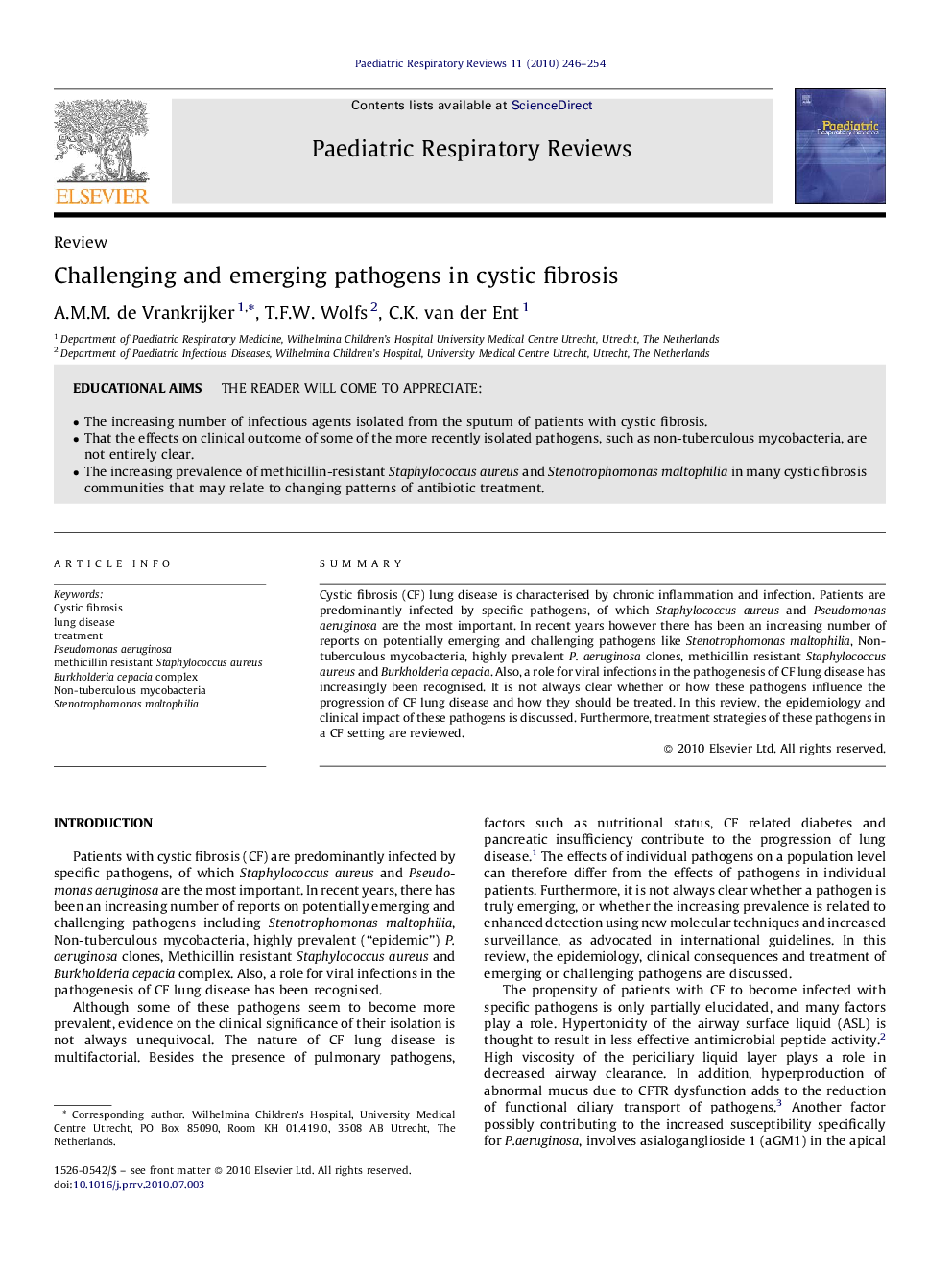| Article ID | Journal | Published Year | Pages | File Type |
|---|---|---|---|---|
| 4171263 | Paediatric Respiratory Reviews | 2010 | 9 Pages |
SummaryCystic fibrosis (CF) lung disease is characterised by chronic inflammation and infection. Patients are predominantly infected by specific pathogens, of which Staphylococcus aureus and Pseudomonas aeruginosa are the most important. In recent years however there has been an increasing number of reports on potentially emerging and challenging pathogens like Stenotrophomonas maltophilia, Non-tuberculous mycobacteria, highly prevalent P. aeruginosa clones, methicillin resistant Staphylococcus aureus and Burkholderia cepacia. Also, a role for viral infections in the pathogenesis of CF lung disease has increasingly been recognised. It is not always clear whether or how these pathogens influence the progression of CF lung disease and how they should be treated. In this review, the epidemiology and clinical impact of these pathogens is discussed. Furthermore, treatment strategies of these pathogens in a CF setting are reviewed.
